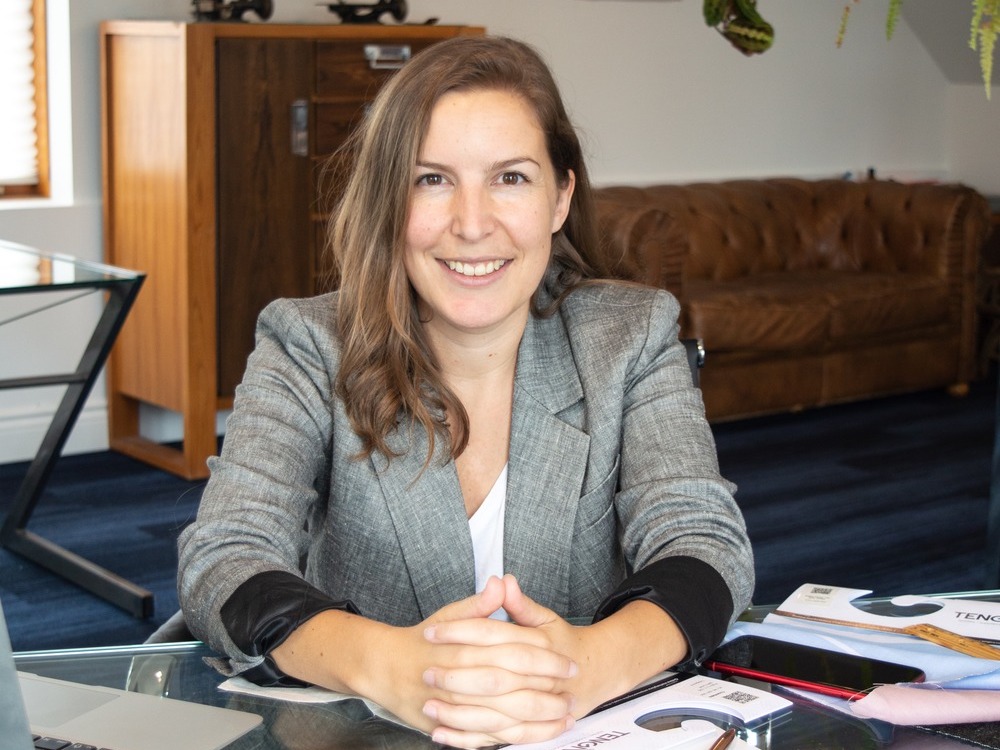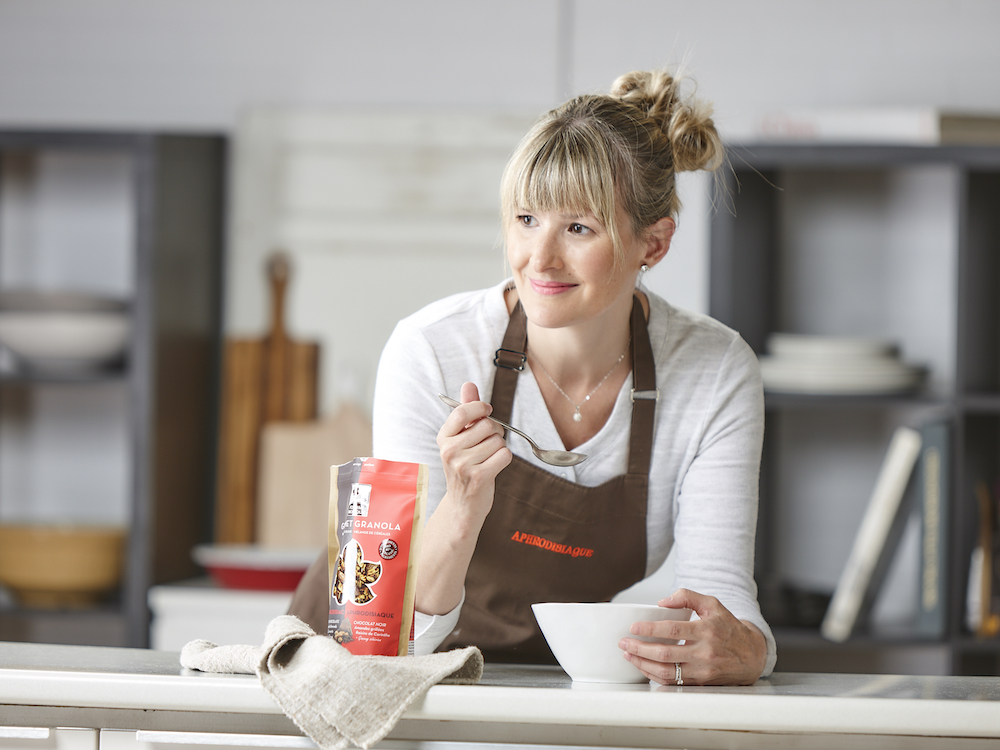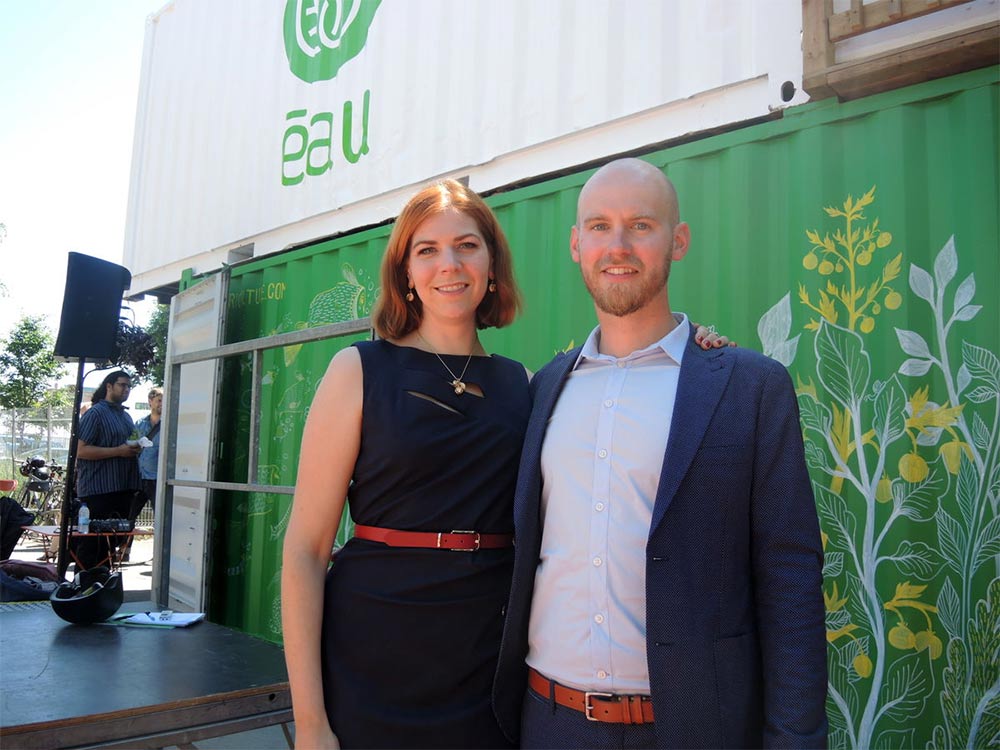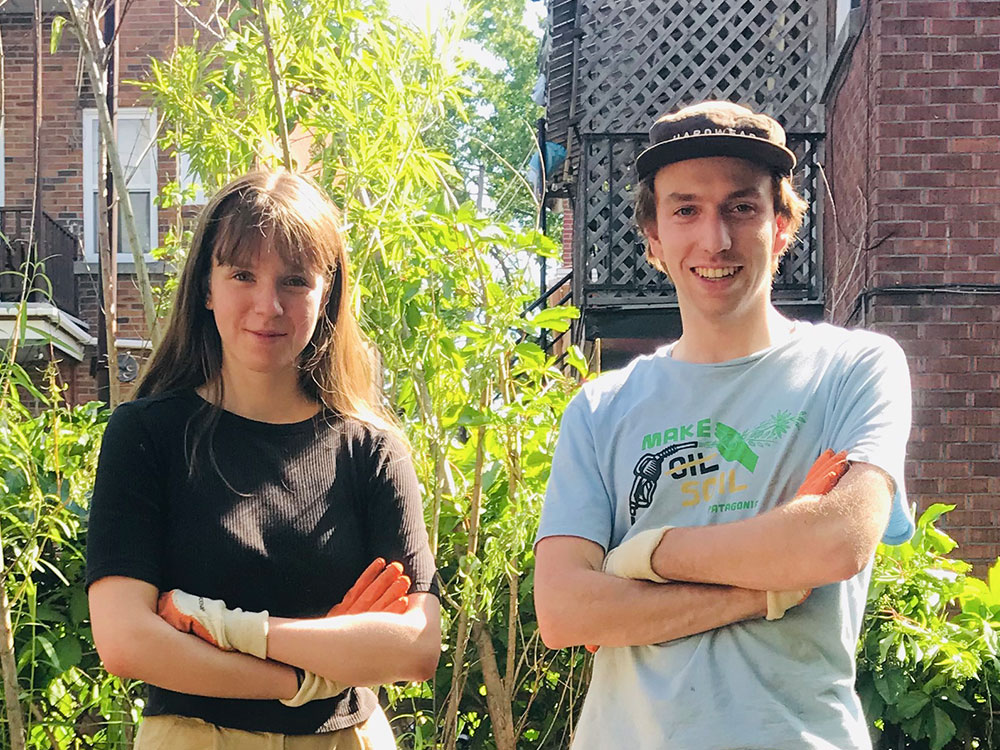
Boîtes Mai: Independence in a box
Louise Foglia and William Des Marais’s Story
The two minds behind the new company Boîtes Mai didn’t come out of an agriculture-adjacent sector, strictly speaking. William Des Marais studies international issues at Cégep du Vieux Montréal while Louise Foglia is pursuing a double major in visual arts and biomedical sciences. Nevertheless, the pair have already put a lot of thinking into ideas involving impact entrepreneurship and food sovereignty. “Actually, we like research, but we believe that entrepreneurship allows you to concretely test theories acquired in school. It’s interesting to talk about positive impact, but that only makes sense if it actually exists,” explains Foglia.
Planting a seed
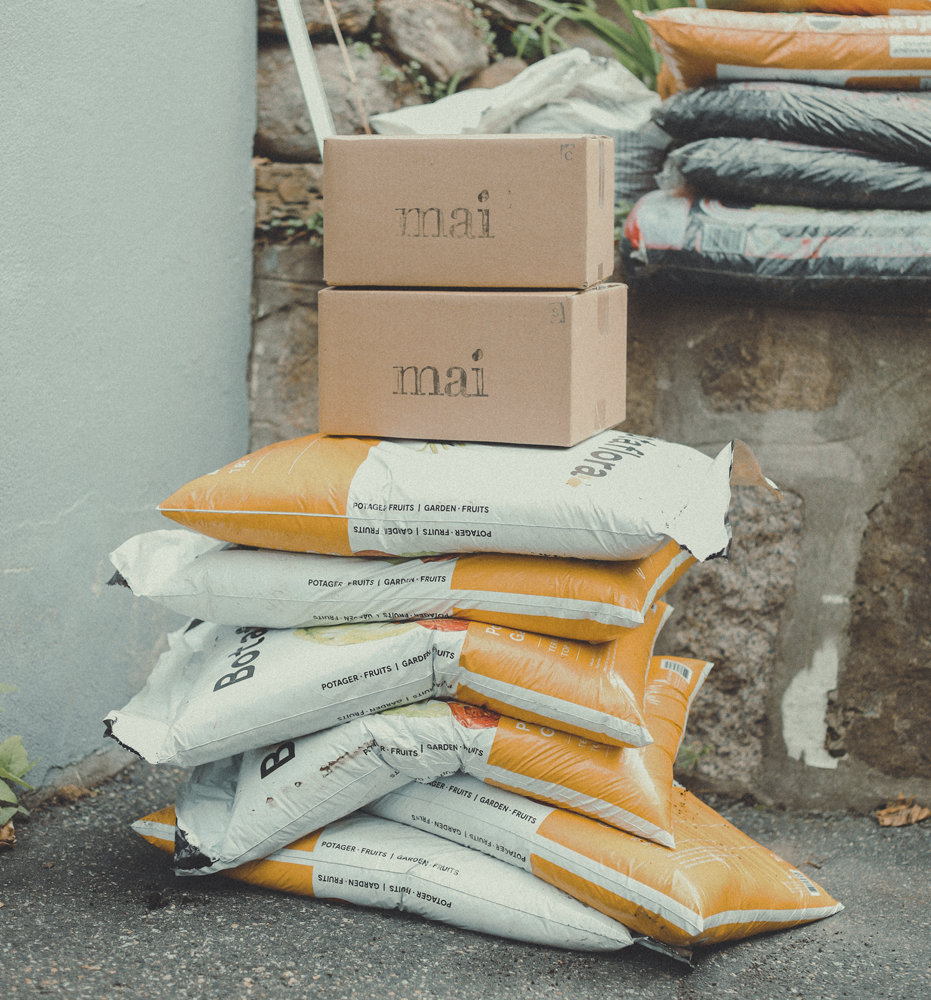 Since the start of the pandemic, recalls Des Marais, the team noticed an interest in kitchen gardens and seeds on social networks and in the media. “So we got the idea of helping people who wanted to make this desire a reality, and in a responsible way,” emphasizes the co-founder. This was back in mid-April. Thus they created various kits for growing herbs and vegetables, bringing together local, organic products, all of which were produced by partners who happily joined the venture. In three weeks, the team had moved from initial idea to first sale. The two co-founders worked non-stop to create the company, register it, develop a website… and even establish their own delivery system!
Since the start of the pandemic, recalls Des Marais, the team noticed an interest in kitchen gardens and seeds on social networks and in the media. “So we got the idea of helping people who wanted to make this desire a reality, and in a responsible way,” emphasizes the co-founder. This was back in mid-April. Thus they created various kits for growing herbs and vegetables, bringing together local, organic products, all of which were produced by partners who happily joined the venture. In three weeks, the team had moved from initial idea to first sale. The two co-founders worked non-stop to create the company, register it, develop a website… and even establish their own delivery system!
With the help of their network and mentors, the two students succeeded in creating a company whose business model enabled a significant amount of autonomy for its operations—during a period when supplier and shipping delays were commonplace, all steps from production to shipping could be handled internally. Also, while they needed to overcome certain logistical challenges (particularly the delivery of thousands of litres of soil), all orders were able to be delivered within the deadlines provided, just in time for the summer season.
In May, the various Boîtes Mai kits—all composed of a range of ecologically responsible, Quebec-made products and local organic seeds—were offered to the public. Reaction to the project was excellent from the beginning.
The experience taught the new entrepreneurs that what’s important is keeping your sights on an established goal, even if things are not perfect. And while the project’s rapidity can be gruelling, it’s also satisfying because it shows the extent to which their efforts have bore fruit.
“Covid-19 gave us the momentum we needed to bring to life a project we had been considering.”
Louise Foglia
Bloom time
Guided by students in communication studies, the pair acquired, in their own words, “a learning space” to develop a communication plan for promoting the company. “There was a particular challenge related to marketing,” Foglia explains. “We know young people, but to sell our products, we needed to talk to a larger clientele that was older than we were. We needed to figure out how to talk to them.”
Using social networks, they appealed to influencers and micro-influencers with some success, although a bigger boost came when the company turned to traditional media. Initially invited to participate in a segment of Salut Bonjour in mid-May, the two entrepreneurs received multiple media requests to recount their motivations and the project’s genesis. Since then, they’ve been flooded with customers on a constant basis.
Thoughts for the next season
After selling over 600 kits (their initial goal was to sell 100), the Mai team are thinking about what comes next. One thing is for sure: The interest they had envisaged for a product facilitating urban agriculture has surfaced, and it’s well beyond their initial hopes. “The success of Boîtes Mai outside of the island of Montreal proved to us that the issue of food autonomy is not just a concern for city dwellers,” states Foglia. “We’re proud to see that people across Quebec were engaged. This question isn’t only Montreal-centred.”
Des Marais takes it a step further: “We were able to prove that there was potential growth for Mai kits, but beyond that, for the idea of producing foods on an individual scale. We see this as a springboard for other initiatives in food sovereignty.”
The current challenge is now to successfully develop a model that goes beyond the seasonal aspect and enables them to cater to people throughout the year. The team, composed of the two founders and a dozen or so part-time collaborators, will therefore continue to work on the project, which might see the light of day this fall.
Boîtes Mai in Numbers:
600: Number of kits distributed in 2020
6: Number of kit types offered
2: Official number of employees (excluding collaborators) at the company
